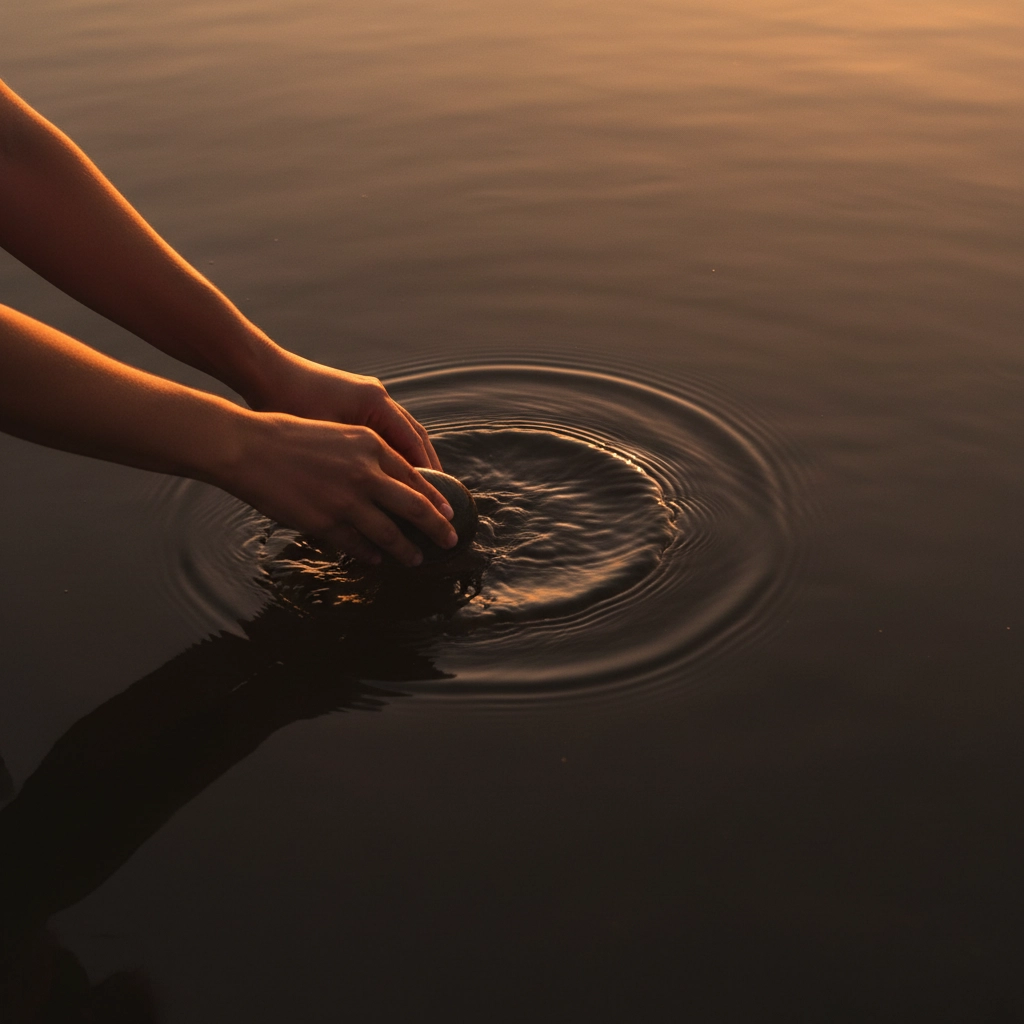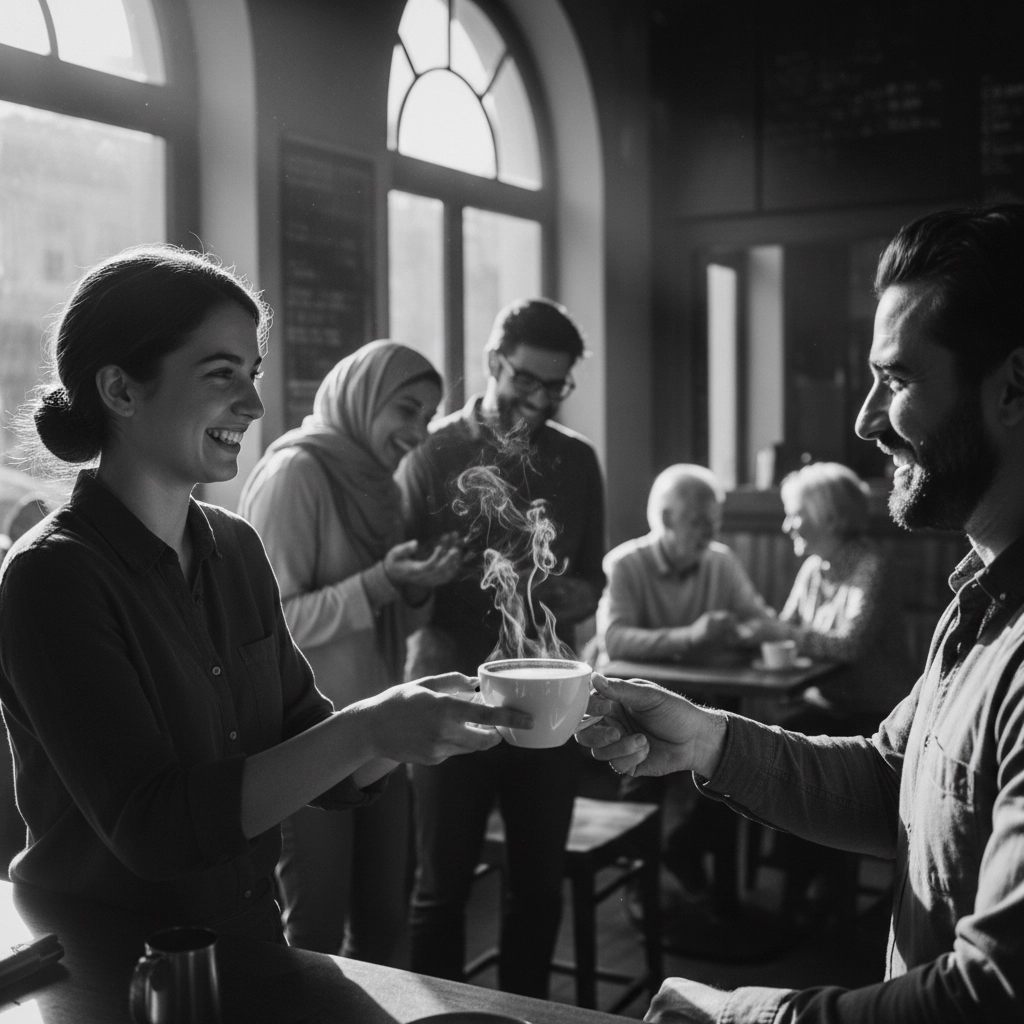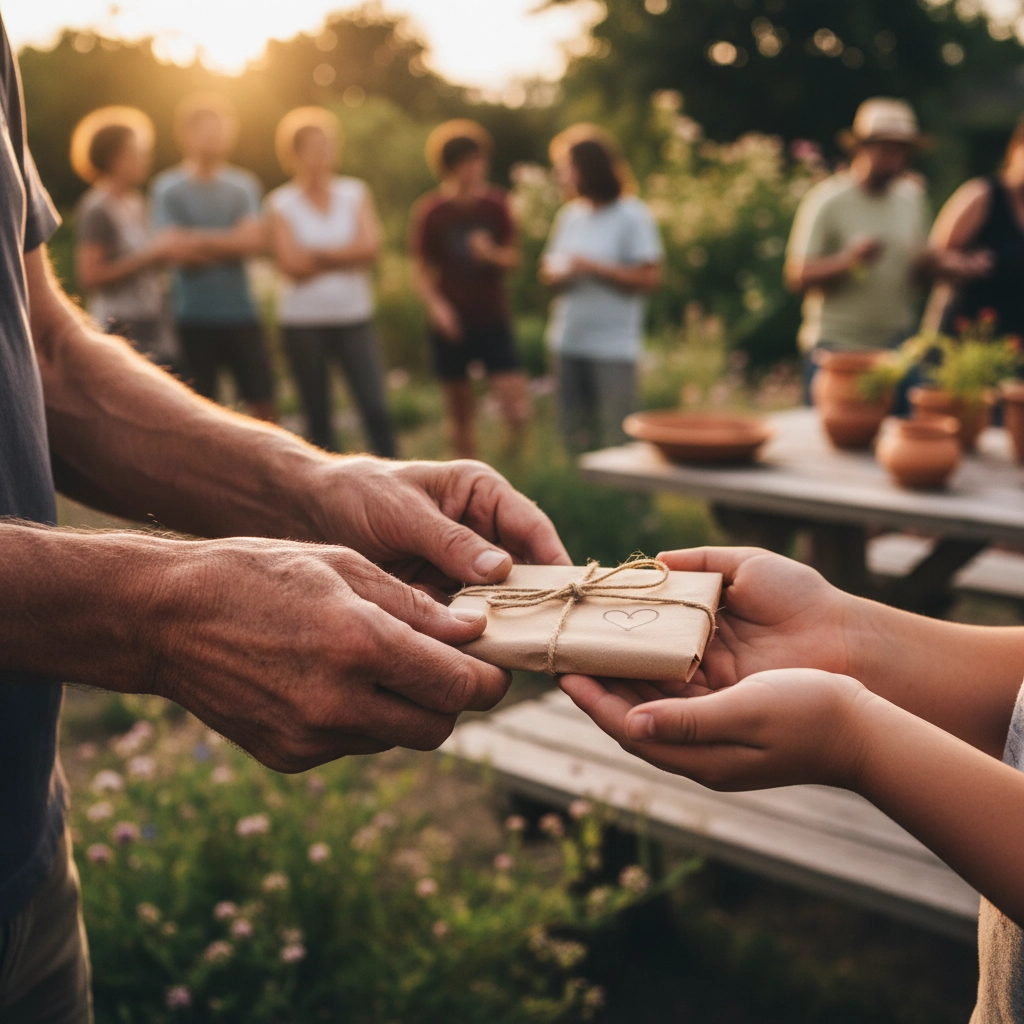There's something magical that happens in coffee shops every single day. A stranger pays for the person behind them in line. A barista remembers a regular's usual order and asks about their sick cat. Someone leaves their table a little cleaner for the next person. These small moments might seem insignificant, but they're actually creating ripples that extend far beyond the coffee shop walls, touching lives in ways we rarely get to witness.
The ripple effect of kindness is one of humanity's most beautiful phenomena – where simple acts of compassion create expanding waves of positivity that can literally change the world, one person at a time.
What Is the Ripple Effect of Kindness?

Think of kindness like a stone thrown into still water. That first splash creates concentric circles that spread outward, each ring touching new areas that the original stone never directly reached. When we perform acts of kindness, we create the same effect in our communities.
Here's the incredible part: when 100 people each do one deliberate act of kindness, the result isn't just 100 kind acts. It's exponentially more. Each kind gesture becomes a catalyst that inspires additional acts of compassion, creating a multiplication effect that can transform entire communities.
Research shows that cooperative behavior spreads through social networks up to three degrees of separation. This means your kindness to someone can influence their friends, their friends' friends, and even their friends' friends' friends. A single act of buying coffee for a stranger might inspire hundreds of people you'll never meet to perform their own acts of kindness.
The Science Behind Kindness Contagion

There's actual neuroscience backing up what many of us intuitively feel – kindness is genuinely contagious. When people witness acts of kindness, their brains release oxytocin, the same hormone associated with bonding, trust, and empathy. This neurochemical response explains why watching someone help another person makes us feel good and motivates us to be kind ourselves.
Social psychology reveals another fascinating aspect through the principle of reciprocity. When someone receives kindness, they don't just feel grateful – they feel a natural pull to pass that kindness forward. But here's the beautiful twist: they don't necessarily return the favor to the original giver. Instead, they often "pay it forward" to the next person they encounter, creating an endless chain reaction.
This is why that free coffee you bought for a stranger might lead them to help someone with their groceries, who then volunteers at a local shelter, who then inspires a young person to choose a career in social work. The ripples just keep spreading.
Real-World Ripples We See Every Day
At Gently Ground Coffee, we witness these ripples constantly. Coffee culture naturally creates opportunities for connection and kindness, and we've seen firsthand how small gestures bloom into something much bigger.
Take the "suspended coffee" tradition – where customers buy an extra coffee for someone who can't afford one. What started as individual acts of generosity has grown into a movement spanning coffee shops worldwide. Each suspended coffee doesn't just provide a drink; it sends a message that someone cares, that the recipient matters, and that kindness exists in the world.

We've watched customers who received unexpected kindness become the most generous people in our shop. A woman whose coffee was paid for by a stranger during a particularly tough week now regularly brings homemade cookies for our staff. A college student who received help with textbook money from a kind customer now tutors other students for free.
These aren't isolated incidents – they're part of the beautiful pattern of how kindness multiplies and spreads through communities.
How Small Acts Create Big Changes
The most powerful aspect of the kindness ripple effect is that the smallest gestures often create the biggest waves. Life reviews from people near the end of their lives reveal a consistent truth: it's not the grand gestures people remember most, but the small, everyday moments of kindness that made the biggest impact.

A genuine "thank you" to a service worker having a rough day might give them the strength to treat the next customer with patience instead of frustration. Holding the door for someone carrying packages could save them from dropping everything and having their day ruined. Smiling at a child in the grocery store might be the bright spot that helps them through a difficult family situation.
These micro-moments of connection and care accumulate into something profound. They remind people that they're not alone, that the world contains goodness, and that they too have the power to make someone else's day better.
Creating Ripples in Our Daily Lives
The beauty of the kindness ripple effect is that it's completely accessible to everyone. You don't need money, special skills, or perfect circumstances to create positive change. You just need to be intentional about the small choices you make every day.
In coffee shops, we see endless opportunities: helping someone struggling with the door while balancing their laptop and coffee, offering your table to someone who looks like they need to work, or simply making genuine eye contact and saying "good morning" to the barista.
At home, it might be leaving encouraging notes for family members, surprising a neighbor by bringing in their packages, or taking a moment to really listen when someone needs to talk.
Online, kindness ripples through sharing uplifting content, leaving supportive comments, or using social media to highlight local businesses and community members doing good work.
The Therapeutic Power of Giving
Understanding the ripple effect serves another crucial purpose – it can be profoundly healing for people struggling with feelings of meaninglessness or depression. When someone feels disconnected or wonders whether their actions matter, recognizing that their smallest gestures create expanding waves of positive impact can provide real therapeutic value.

There's growing evidence that practicing kindness is one of the most effective ways to improve our own mental health and sense of purpose. When we focus on creating positive ripples for others, we inevitably find ourselves caught up in those same waves of goodness.
Building a Culture of Kindness
The collective power of individual kindness ripples can transform entire communities. Rather than requiring direct contact with countless people, each act of kindness branches out in multiple directions simultaneously, multiplying our positive influence exponentially.
Coffee shops and local businesses have a unique opportunity to nurture these ripples. By creating welcoming spaces, acknowledging regular customers, and celebrating acts of kindness when we witness them, we become catalysts for community connection.
Every daily interaction becomes an opportunity to influence the broader world through this ripple mechanism. When we choose patience over irritation, generosity over selfishness, and connection over indifference, we're not just improving our immediate situation – we're contributing to a wave of positive change that extends far beyond what we can see.
The ripple effect of kindness reveals a fundamental truth: our individual actions matter far more than we typically realize. The simplest gestures of compassion possess the power to create transformative change that extends across time, distance, and social boundaries. In a world that often feels divided and challenging, we all have the ability to create positive change through the beautiful, simple act of being kind.
Every cup of coffee shared, every door held open, every genuine smile offered creates ripples that make our world a little brighter. And in a time when kindness feels more necessary than ever, that's a pretty powerful thing to remember.




